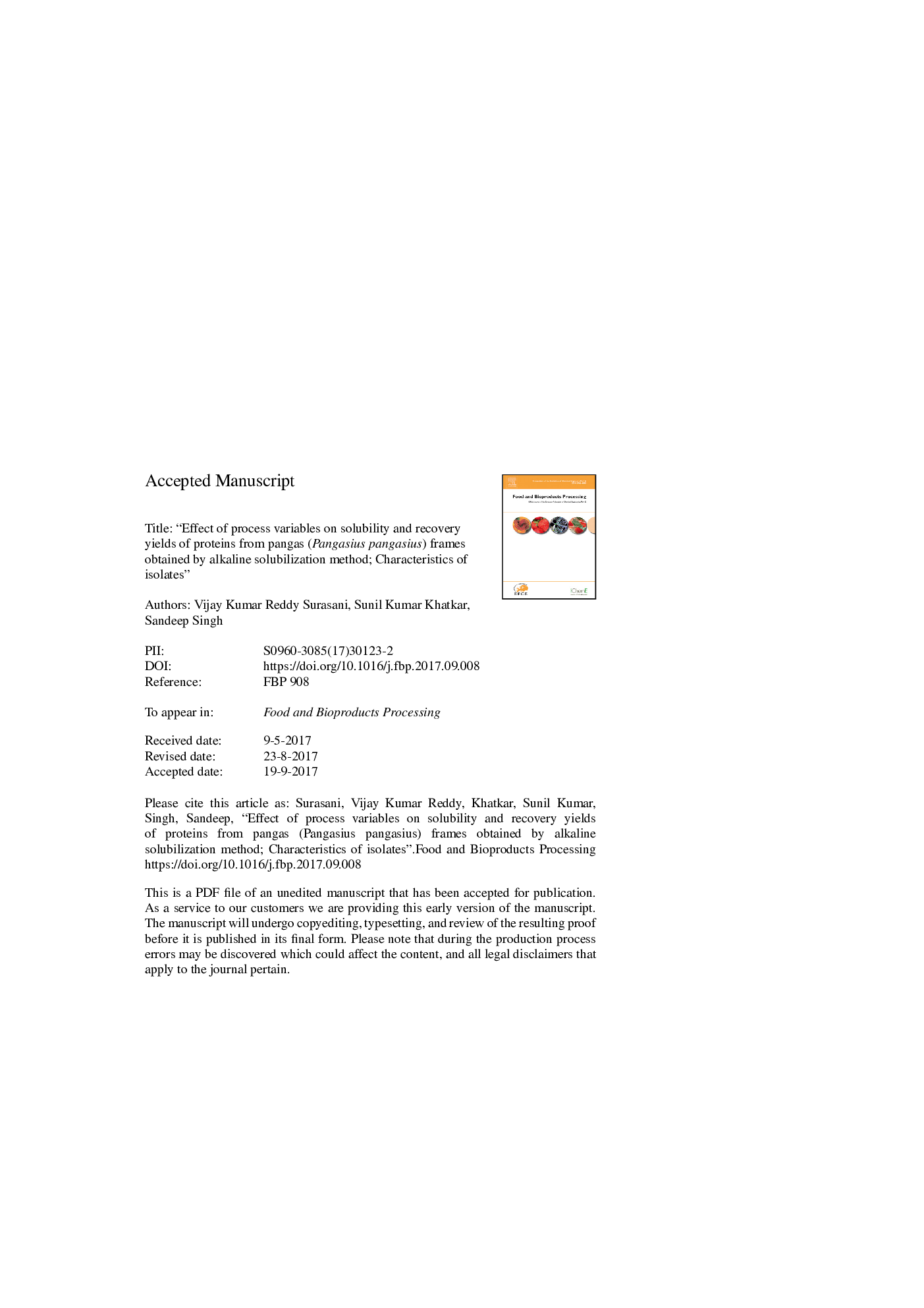| Article ID | Journal | Published Year | Pages | File Type |
|---|---|---|---|---|
| 4752917 | Food and Bioproducts Processing | 2017 | 29 Pages |
Abstract
Proteins from pangas (Pangasius pangasius) fillet frame were recovered using alkaline solubilization method. Effect of process variables like pH, time, weight of paste to extractant volume ratio, temperature, centrifugation speed and stirring frequency on concentration and recoveries were studied. pH, weight of paste to extractant volume ratio, temperature and centrifugation speed were found to have significant effect (p < 0.05) on protein solubility as well as on recoveries. The optimum extraction conditions found were pH-13.0, extraction time - 60 min, temperature - 50 °C, weight of paste to extractant volume ratio-1:6, centrifugation speed - 8000 rpm and continuous stirring, with a total recovery of 68.52%. During alkaline processing lipids, myoglobin and pigment contents were reduced by 90.33, 97.65 and 58.27%, respectively. Despite of improving the color of the isolates and gel, alkaline processing could cause some denaturation resulting in low gel strength and water holding capacity of gels. Alkaline processing did not affect the amino acid profiling substantially, resulting in maximum recovery of all the amino acids. Glutamic acid (GLU), aspartic acid (ASP), leucine (LEU) and lysine (LYS) were found to be the major amino acids in isolates. Alkaline processing could cause enrichment of the essential amino acids in isolates.
Related Topics
Physical Sciences and Engineering
Chemical Engineering
Bioengineering
Authors
Vijay Kumar Reddy Surasani, Sunil Kumar Khatkar, Sandeep Singh,
